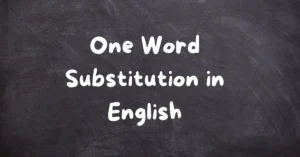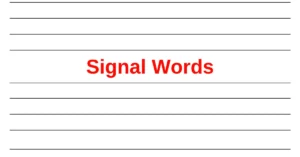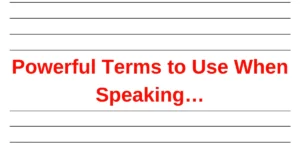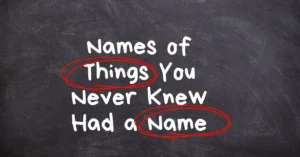Have you ever tried to convince a friend to watch your favorite movie or explain why your idea is the best in a class discussion? That’s persuasive writing! It’s like having a conversation where your words have power.
Persuasive writing is a super tool that helps you share your ideas and make others agree with you. If you’re learning English, knowing how to write persuasively is very useful—and it’s not as hard as you think. On this page, we’re learning about signal words.
These are the magic words that help your writing flow and make your arguments clear. Let’s dive in and learn how to make our English more persuasive and fun!
What Are Signal Words in Persuasive Writing?
Signal words are like signs on a road. They guide your readers, helping them follow your ideas. These words connect sentences and show your opinions or reasons. They also help summarize your thoughts and add examples. For example, if you say, “In my opinion,” readers know you’re about to share your view. If you say, “For instance,” they know an example is coming.
Using signal words is especially important in persuasive writing. Why? Because they make your arguments stronger and easier to understand. Whether you want to express your belief, agree or disagree, or give examples, signal words will help your ideas shine.

Why Are Signal Words Important?
Using signal words makes your writing clear and organized. It helps the reader understand your ideas step by step. Without them, your writing might feel confusing or hard to follow. Whether you’re writing an essay, giving a speech, or just sharing your thoughts, signal words make everything better.
Also Read: 20 Alternatives To The Word “guilty”
Common Signal Words and How to Use Them
Here is a list of useful signal words that can transform your writing into something persuasive and powerful. Let’s see how they work!
1. Expressing Opinions
When you want to share your thoughts or feelings, use these signal words:
- In my opinion: “In my opinion, learning English is very exciting because it opens many doors.”
- I believe: “I believe that teamwork is the key to success.”
- It seems to me that: “It seems to me that everyone should practice kindness every day.”
- From my point of view: “From my point of view, reading books is better than watching TV.”
These phrases make it clear that you’re expressing your own thoughts. Use them when you want your readers to know how you feel about a topic.2.
2. Showing Certainty
When you’re confident about something, these signal words can help:
- Undoubtedly: “Undoubtedly, exercise is good for your health.”
- Without a doubt: “Without a doubt, teamwork helps us achieve more.”
- Obviously: “Obviously, eating healthy food improves your energy levels.”
These words show your readers that you are sure of your argument.
3. Adding Reasons and Examples
To make your writing more convincing, always give reasons or examples. Use these signal words:
- For example: “For example, apples are a great snack because they are healthy and delicious.”
- For instance: “For instance, learning new words every day can quickly improve your vocabulary.”
- In fact: “In fact, most people agree that English is one of the most important languages to learn.”
When you use examples, your readers understand your ideas better.
4. Summarizing or Wrapping Up
To end your writing or sum up your ideas, use these helpful signal words:
- In short: “In short, learning English improves your future opportunities.”
- Finally: “Finally, remember to practice writing every day for success.”
- As you can see: “As you can see, using signal words makes your writing clear and strong.”
These phrases help you organize your ideas neatly and leave a strong final impression.
5. Connecting Ideas
When you want to add more ideas or link them together, these words work wonders:
- Furthermore: “Furthermore, learning English helps you connect with people from around the world.”
- In addition: “In addition, practicing speaking improves your confidence.”
- Likewise: “Likewise, reading books in English helps you improve your grammar.”
These words show your readers that you’re adding more information or making a comparison.
Practice Time!
Let’s try using these signal words in a short persuasive paragraph.
Example:
“In my opinion, learning English is very important for everyone. For instance, English is used in business, schools, and even movies. In addition, it helps you travel and make new friends around the world. Undoubtedly, it opens many doors for your future. As you can see, practicing English every day is worth it!”
Also Read: 10 Powerful Terms to Use When Speaking…
Conclusion
Now you know the magic of signal words in persuasive writing. These little words make a big difference by guiding your readers, sharing your ideas, and making your arguments strong. Start using them today, and you’ll see how much better your English becomes. As I have noted, practice makes perfect. So, keep writing, keep learning, and keep shining!
Explore More…
- 23 – One Word Substitution Examples
 Ready to boost your vocabulary and sound super smart? Let’s learn some one-word substitutions that …
Ready to boost your vocabulary and sound super smart? Let’s learn some one-word substitutions that … - Persuasive Writing – Signal Words
 Have you ever tried to convince a friend to watch your favorite movie or explain …
Have you ever tried to convince a friend to watch your favorite movie or explain … - 10 Powerful Terms to Use When Speaking…
 Speaking: Want to sound more confident and smarter when you speak? If yes, then you’re …
Speaking: Want to sound more confident and smarter when you speak? If yes, then you’re … - 20 Alternatives To The Word “guilty”
 The word “guilty” is commonly used to describe someone who has committed an offense or …
The word “guilty” is commonly used to describe someone who has committed an offense or … - The Names of Things You Probably Didn’t Know
 Ever wondered about the odd little details in life that go unnoticed but have fascinating …
Ever wondered about the odd little details in life that go unnoticed but have fascinating …




